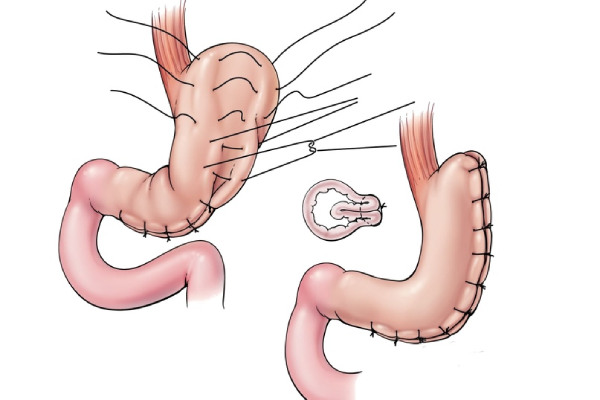People who suffer from extreme obesity can find relief through gastric bypass surgery, a weight loss operation that has a very high success rate. This surgical procedure modifies the digestive tract in a way that restricts food intake and nutrient absorption, in addition to reducing the size of the stomach.
Significant weight loss and improved health can be achieved with gastric bypass, which involves forming a tiny pouch in the stomach and skipping a part of the small intestine. Learn about gastric bypass surgery’s process, advantages, risks, and how to make the necessary lifestyle modifications for long-term success in this article.
Gastric bypass surgery
The Roux-en-Y gastric bypass, or gastric bypass surgery, is among the most prevalent bariatric procedures. Making a little pouch on top of the c and attaching it straight to the small intestine is what this procedure entails. Food passes directly to the middle section of the small intestine after entering the small pouch, avoiding the bulk of the stomach and a portion of the small intestine. The amount of food that can be taken and the nutrients that the body can absorb are both severely limited by this.
Gastric bypass is unique among weight loss procedures in that it takes a two-pronged approach by reducing food intake and the size of the stomach. Because of these factors, gastric bypass surgery is among the best options for people looking to lose weight permanently.
How Is Gastric Bypass Met?
There are two primary ways in which gastric bypass surgery aids weight loss: restriction and malabsorption. Let me explain how each part functions:
- The surgeon will produce a small pouch:About the size of a walnut, from the upper part of the stomach as part of the restriction procedure. With a capacity of only around one ounce, this pouch severely limits the quantity of food that may be consumed in a single session. Patients experience a rapid satiety response and are hence less prone to overeating.
- To avoid malabsorption: the surgeon joins the newly formed pouch straight to the small intestine’s middle section after its creation, skipping across most of the stomach and the duodenum. Because food does not go through the entire digestive system anymore, the absorption of nutrients and calories is reduced.
- Changes in Hormones: Gastric bypass surgery changes hormones in the gut, including ghrelin (the hunger hormone), which can make you feel fuller for longer and decrease your appetite. Better control of blood sugar, especially for people with type 2 diabetes, is another benefit of increasing insulin sensitivity.
Gastric bypass surgery is a viable option for certain people
People who are extremely obese who have tried and failed to lose weight permanently with medicine, diet, or exercise may be candidates for gastric bypass surgery. Typically, the following requirements are met by candidates:
- A BMI of 40 or over, indicating a severe case of obesity.
- A body mass index (BMI) between 35 and 39.9, along with other health issues related to obesity, like type 2 diabetes, hypertension, or sleep apnea.
- Non-surgical weight loss treatments fail to provide or sustain the desired results.
- Dedication to transform one’s way of lifewhich includes adhering rigidly to a prescribed eating and exercise regimen following surgery.
Furthermore, prospective patients are required to undergo comprehensive medical testing to determine their general health and surgical preparedness. Physical examinations, blood testing, and meetings with mental health professionals and nutritionists are common components of this assessment.
Gastric Bypass Surgery’s Advantages
Beyond only helping people lose weight, gastric bypass surgery has many other positive effects, such as reducing or eliminating health problems associated with obesity. Among the most important advantages are:
- Notable Decrease in Body Mass: In the year following surgery, patients usually shed 60–80% of their excess weight. Significant weight loss has the potential to enhance physical well-being and lower the risk of diseases associated with obesity.
- Gastric bypass is very helpful for people who have type 2 diabetes:either improving their condition or resolving it. Patients with diabetes often see dramatic improvements in their ability to control blood sugar levels, and in rare cases, they may even achieve full remission and never need to take their medicine again.
- Gastric bypass surgery promotes weight loss: which in turn reduces the risk of high blood pressure and improves cholesterol levels. These factors work together to reduce the risk of heart disease and stroke.
- Improvement in Sleep Apnea: After losing a lot of weight, many people with obstructive sleep apnea see a marked improvement in their symptoms or even a full recovery. This means that they no longer need to use CPAP machines.
- Relief from Joint Pain: People with arthritis or other joint pains may find that their symptoms improve and their mobility increases as they lose weight because their bodies put less strain on their joints
Conclusion
By facilitating substantial weight loss and the amelioration of numerous health issues connected to obesity, gastric bypass surgery is a potent remedy for anyone battling with extreme obesity. Weight loss that lasts is possible thanks to this operation, which involves lowering the size of the stomach and bypassing part of the small intestine.
As a result, calorie absorption is limited and food intake is restricted. On the other hand, maintaining a healthy lifestyle through diet, exercise, and medical monitoring is essential for the best possible results. Despite the potential dangers, gastric bypass surgery is a game-changer for many people who want better health, more mobility, and a higher quality of life.





